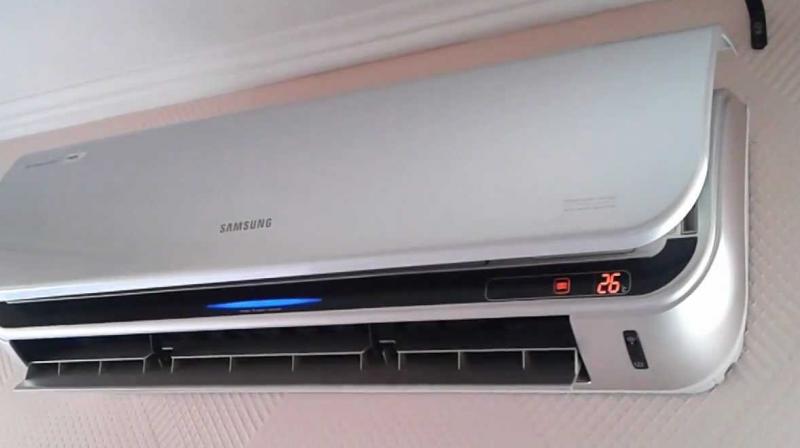Inverter ACs: All you need to know
Inverter ACs have raised the bar for energy efficiency of air conditioners in India and is no more a burden on electricity bills.

Owing to the increasing need for energy efficiency, Air-Conditioner (AC) makers are shifting towards Inverter AC from conventional ACs. The share of Inverter ACs is expected to grow significantly over the next three to four years. With fast-paced growth of Inverter AC segment and increased consumer awareness around indoor air quality, innovations like enhanced air filters will be part of Inverter ACs in the near future.
In 2017, Samsung launched a new line of air conditioners, called S-Inverter series, tailor-made for Indian conditions. The Digital Inverter range is equipped with world’s first 8-pole motor, ensuring faster cooling performance of up to 43 per cent. For increased durability, Samsung ACs also come with outdoor unit’s DuraFin for better corrosion resistance as compared to conventional PFC. Best suitable for India, Samsung AC range also comes with a new Voltage Protector feature that can handle voltage fluctuations from 146V to 290V ensuring worry-free operation.
Samsung air conditioner models come with highly efficient twin BLDC (Brushless DC electric motor) that reduces variation by 40 per cent, when compared to the conventional compressor. Twin BLDC compressor increases reliability, reduces noise and provides longer product life.
The Inverter AC range has been designed for the consumers who are looking for energy efficient products. The Inverter ACs have also proven to be cost-effective in the long run as compared to the normal ACs. With the launch of 8 Pole Digital Inverter Series this year, Samsung has taken the Inverter AC segment to the next level. It enables 43 per cent faster cooling, power conservation and durability.
The AC industry has grown considerably over the years. From a luxury product, ACs have now become a necessity and the Inverter AC segment has witnessed a 100 per cent growth this year with more than 40 per cent contribution as compared to 15 per cent in 2016. It is further expected to reach to around 60-70 per cent or more in 2018, with all players shifting their focus to inverter technology.
Over the time, consumers have developed preferences for energy efficient models. Inverter built systems vary basis the speed of the compressors and deliver precise cooling, thereby cutting down the power consumption. In India, the Inverter AC segment is relatively new but fast growing. Growth outlook in India is believed to be favourable as more and more customers are becoming aware of the benefits of the Inverter Technology. As a result, the Inverter AC segment in the last two years has seen phenomenal growth and is estimated to continue. Growth in inverter segment has surpassed the growth of normal split AC segment.
Globally, all developed countries have migrated to Inverter ACs which comprises of 90 per cent of the category today. In the Indian market, the perception of towards the product has also been shifting and a large section of the urban middle class considers it as more of a necessity rather than a luxury item, given the warm and humid climate here. Inverter ACs have raised the bar for energy efficiency of air conditioners in India and is no more a burden on electricity bills.
Samsung, with the introduction of 8 pole digital inverter series, has taken the Inverter AC segment to the next level. In 2018, Samsung will introduce another very unique concept in inverter air conditioning, which will change the way how consumers perceive the working of the air conditioners. Through their worldwide market research they have identified the “pain points” of consumers and with this new technology, they are going to address that concern and make the entire usability more comfortable for them.
The market for ACs in India still has untapped potential and a lot of scope for market penetration. Over the last 1.5 years, we have seen the prices of inverter ACs come down by 10-15 per cent. On the other hand, in 2018 new and stricter norms are coming from the AC sector. It will become mandatory for all AC segment to follow the standard and norms. Accordingly, it is expected that the price of ACs will increase.

